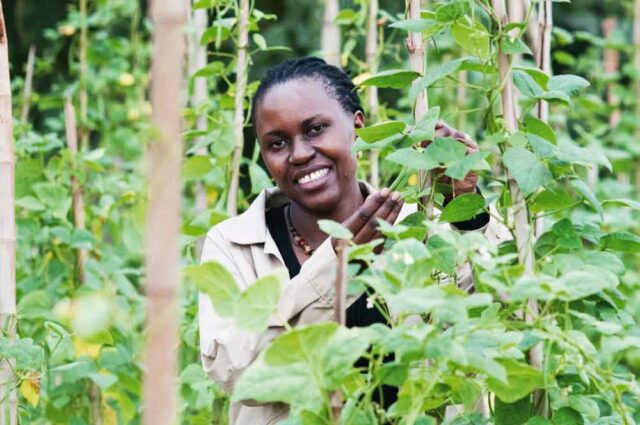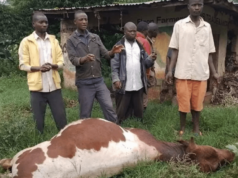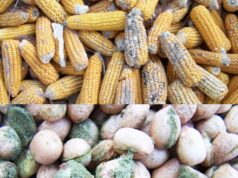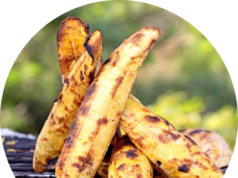By Beatrice Nakibuuka
Today, the Ugandan market is flooded with a wide variety of beans. Beans are an important staple sauce in most Ugandan homes and institutions such as schools. This implies they always have ready market.
White speckled beans, commonly known as Masavu or Nakadama in the Central region, is one type that can help a farmer make quick money.
Both fresh and dry Masavu beans are on high demand. They are the second most traded commodity in East Africa.
Beans are a natural source of protein, carbohydrates, and micro-nutrients, mostly B vitamins, iron, calcium and zinc.
The crop offers a good source of balanced nutrition for rural and urban households, especially those who can barely afford animal protein.
Scientists at the National Crop Resources Research Institute, developed two bean seed varieties that are rich in iron and zinc with the aim of addressing the increasing rate of iron deficiencies among children from 6 months to 5 years, and women of childbearing age.
The beans named NARO Bean 6 and NARO Bean 7, can be accessed by farmers through seed companies accredited by the National Agriculture Research Organisation (NARO).
Such seed companies include Pearl seeds, Equator seed, Naseco seed company, and Sayova, among others.
Solving food security
With only 15 per cent of 6-month to 2-year-old children in Uganda consuming the minimum acceptable diet, as measured, Nelly Birungi, a nutritionist at UNICEF, says the new beans variety is expected to address the growing concerns about malnutrition across the country.
A recent report by UNICEF named: “Undernourished and Overlooked: A Global Nutrition Crisis in Adolescent Girls and Women,” indicates that malnutrition, especially among pregnant women and adolescents, heightens the risk of maternal and neonatal mortality and morbidity, low birth weight babies, impeded growth, impaired cognitive development, all of which often translates to an intergenerational cycle of malnutrition.
This has led to a call for nutrition and food security mainstreaming in the second budget call circular on the finalisation of the budget estimates for the financial year 2023/2024, issued on 15 February 2023.
The circular urges the sub-programmes of health, agriculture, water, education, social development and trade to identify and implement measures to mitigate food insecurity and under-nutrition, specifically maternal and child under-nutrition, which is the leading cause of stunting today.
A cup of fresh masavu beans costs between Shs2,000 and Shs4,000. While a kilo of the same dry beans costs between Shs5,200 and Shs7,000.
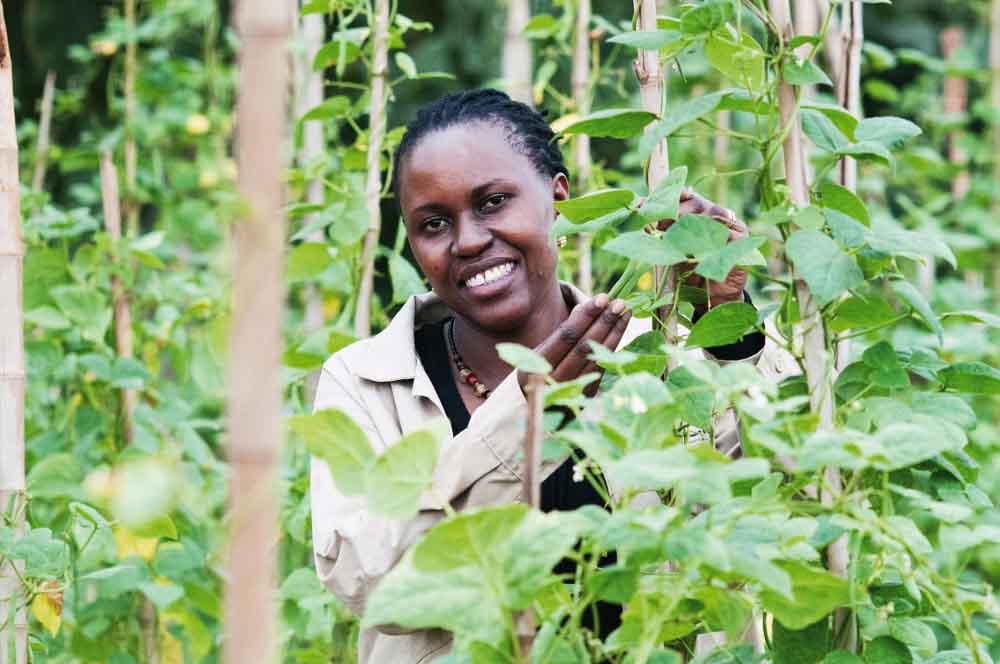
The innovation
Dr Clare Mukankusi is a plant breeder at the Alliance of Bioversity International and the International Center for Tropical Agriculture.
She spends her days developing new plant varieties that are more nutritious and easier to grow.
The beans varieties grown in Uganda, require about three hours of cooking time. However, since most Ugandans still use charcoal and firewood for cooking, the cost of energy is high.
Besides, cooking with wood creates a lot of smoke, which causes health problems.
This is why Mukankusi developed the traditional, crossbreeding technique to create new varieties with desirable traits to make beans easier to cook and more nutritious.
Recently, Mukankusi released another beans variety that gets ready for eating in as little time as 40 minutes.
It also has 15 percent more iron and 10 percent more zinc than a normal beans.
Malnutrition and anemia remain big problems in Uganda, especially for children. Therefore, such innovations are a blessing for children to stay healthy.
The farmers who work with Mukankusi are worried about climate change which is creating more extreme growing conditions and changing the types of pathogens they see in the field. However, it seems with the new variety, farmers will not have to worry whether it rains or not.
Mukankusi says: “It’s challenging to keep up with the climate, pests, and disease. We need to be on the lookout for all of this to ensure that beans are able to survive even under different climates.”
She is working closely with bean breeders across Africa to make more climate-resilient beans in order to adapt to climate change challenges.
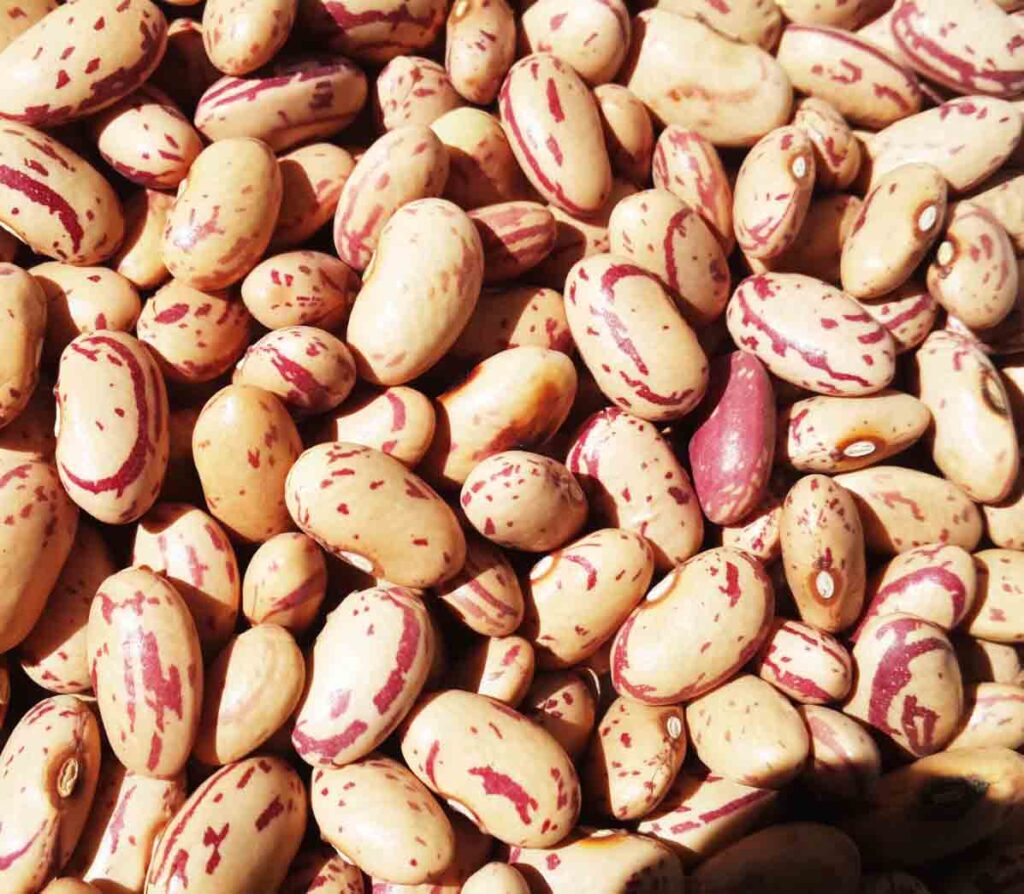
Mukankusi is a key leader in the Pan-Africa Bean Research Alliance, a consortium of 31 national research programmes that facilitates information sharing and collaboration.
Currently, Mukankusi and her colleagues are focused on breeding qualities that make for better drought tolerance, like deeper roots that are resistant to root rot.
“Plant breeding is a really important science,” Mukankusi says, “Because it actually looks at how we are going to have food in the future. What food are we going to be consuming?
“Will we have enough food? We keep abreast with the population and changes in the behaviour of people to make sure that we are actually addressing the needs of food at that time.”
















